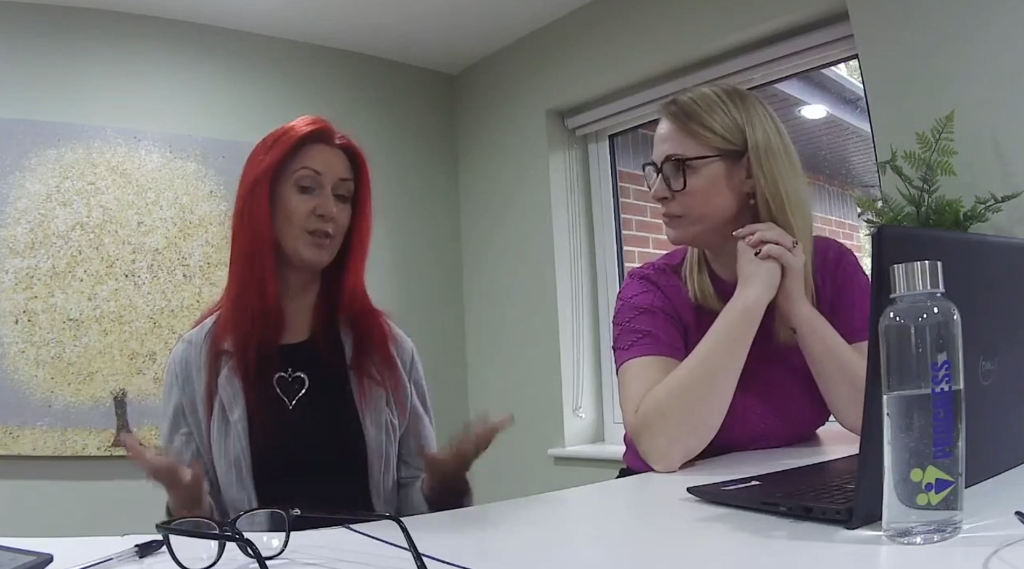Behind the Scenes of Becoming a Foster Carer
Our very first Facebook Live event on fostering took place recently and it quickly became a warm, open and informative session. Michelle, our Fostering Manager, and Kirsty, our Relationship Manager, led the conversation. Together, they walked viewers through the essentials of fostering and answered many of the questions we are often asked by people considering their first steps toward becoming foster carers.
If you missed the session, here is a full recap of what was discussed.
Michelle has been with Progress for more than a decade and now oversees the entire fostering team. Her role involves supporting our supervising social workers, practice leads, support workers, therapists and the admin team who keep everything running smoothly. She described Progress as a small, close-knit team where everyone knows each foster carer, each child and each situation well.
Kirsty, who has also been with Progress for 13 years, introduced herself as the Relationship Manager for the fostering service. She supports people from the moment they make an initial inquiry through to their assessment and eventually the day they welcome a child into their home.
Both emphasised the importance of a strong, connected fostering community built on relationship, support and communication.
What Are the Essential Requirements to Become a Foster Carer?
One of the main aims of the session was to break down the basics of fostering. Many people are curious about what is required and are often unsure whether they would be eligible. Michelle and Kirsty talked through the essentials clearly and reassuringly.
Age
You must be at least 21 to foster. There is no upper age limit. Some of our most experienced carers are in their 60s and 70s and continue to provide safe, nurturing homes.
A Spare Bedroom
Every foster child must have their own bedroom. This is a requirement for their privacy, safety and emotional wellbeing. Even if your own children currently share a room, the foster child will still need a separate space.
Right to Live and Work in the UK
This ensures stability and avoids the risk of disruption for the child.
A Safe and Suitable Home
Your home does not need to be large or owned. Renting is completely acceptable as long as the environment is safe, clean and suitable. If you rent, your landlord will need to confirm that they allow fostering at the property.
Time and Emotional Availability
Fostering is a full-time commitment. Children in care often come from unpredictable or challenging backgrounds and need consistent, stable, emotionally present adults who can respond to their needs.
Good Health
Carers should be physically and emotionally well. Looking after a child requires resilience, energy and emotional stability.
Willingness to Work as Part of a Team
Foster carers work closely with social workers, schools, therapists and sometimes birth families. Communication and teamwork are essential, and in return you are supported by a network of professionals.
Background Checks
Enhanced DBS checks are completed for all adults in the home, along with references and local authority checks. Past mistakes do not automatically prevent someone from fostering. What matters is honesty and evidence of change.
Frequently Asked Questions From the Live Session
The comment section was lively and full of practical questions. Michelle and Kirsty responded to several of the most common ones.
Can you foster if you are single?
Yes. Many brilliant foster carers are single. What matters most is your ability to provide stable care.
Can you foster if you rent your home?
Yes. As long as your home is safe, stable and suitable.
Can you foster if you have children already?
Yes. Matching is handled carefully and the team will help you consider what age range or needs would suit your family dynamics best.
Can you foster if you have pets?
Yes. Pets can be a wonderful source of comfort for children. Risk assessments are always completed, and the only restriction is on dogs listed as dangerous breeds. Matching will take into account whether a child is comfortable around animals.
Does a foster child always need a spare room?
Yes. Every child in care must have their own bedroom for privacy and emotional safety.
Your First Steps Into Fostering
Kirsty also walked through what happens when someone decides to explore fostering with Progress.
The Initial Enquiry
Your journey may begin through a Facebook campaign, a phone call, or an email. If you give permission, a member of the team will call you for an initial conversation. This covers your motivations, your living arrangements and the basic requirements.
The Initial Visit
Next comes the initial visit, usually done by Kirsty or Ludwig. This conversation goes deeper into your background, experience and family life. It can take place online or in person, although face to face is often preferred. A brief look at your home environment will follow so that the team can confirm it is safe and suitable.
If everything is in place, the next stage of the assessment begins. This will be covered in more detail in future sessions.




